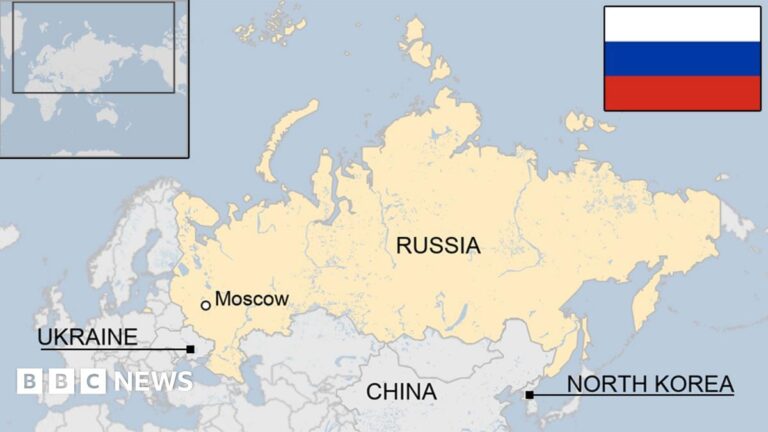Russia has indicated that peace talks with Japan could proceed if Tokyo abandons its so-called “anti-Russian course,” Reuters reports. The statement marks a potential shift in dialogue between the two countries, which have long been at odds over territorial disputes dating back to World War II. Moscow’s conditional stance underscores the complex geopolitical tensions influencing their relationship and raises questions about the prospects for resolving longstanding issues in the region.
Russia Signals Willingness for Peace Talks Conditional on Japan Ending Anti-Russian Policies
Russia has indicated a conditional openness to resuming peace talks with Japan, contingent upon a significant shift in Tokyo’s foreign policy stance. Moscow emphasizes that any progress hinges on Japan’s willingness to abandon what it describes as an “anti-Russian course,” which includes sanctions and diplomatic opposition rooted in ongoing disputes. This stance reflects heightened tensions surrounding territorial disagreements and geopolitical alignments in the region.
Key points outlined by Russian officials regarding the prerequisites for dialogue include:
- Immediate lifting of economic sanctions imposed on Russia.
- Reduction of military cooperation between Japan and Western allies targeting Russian interests.
- Withdrawal of diplomatic measures perceived as hostile by Moscow.
| Condition | Implication for Talks |
|---|---|
| Reversal of sanctions | Enabled economic normalization |
| End of military cooperation targeting Russia | Reduced regional tensions |
| Diplomatic rapprochement | Improved trust for negotiations |
Analyzing the Impact of Japan’s Political Stance on Bilateral Negotiations and Regional Stability
Japan’s political positioning plays a crucial role in shaping the dynamics of its bilateral negotiations with Russia. The Kremlin’s recent statement emphasizes a conditional willingness to resume peace talks, contingent upon Japan relinquishing what it terms an “anti-Russian course.” This posture reflects Moscow’s broader strategic calculus, where geopolitical alignments and diplomatic gestures are closely monitored and factored into negotiation stances. Tokyo’s steadfast alliances, particularly with Western powers, are perceived by Russia as obstacles to fostering a more congenial dialogue. Such perceptions inevitably complicate the progress toward resolving longstanding issues, including the disputed Kuril Islands.
- Impact on bilateral relations: Heightened mistrust stemming from contrasting geopolitical alliances.
- Regional security implications: Potential escalation in tensions affecting Northeast Asian stability.
- Negotiation prospects: Preconditions set by Russia could stall peace progress indefinitely.
| Factor | Japanese Stance | Russian Response |
|---|---|---|
| Military Alliances | Strong partnership with the US and NATO | Views these as hostile provocations |
| Economic Sanctions | Supports sanctions on Russia | Demands withdrawal as a precondition |
| Territorial Disputes | Claims sovereignty over Kuril Islands | Maintains firm control, refuses negotiations without political concessions |
The intricacies of Japan’s political posture exert tangible influence on regional stability. A hardline approach risks exacerbating diplomatic deadlocks, potentially triggering a chain reaction that undermines cooperative security frameworks in Northeast Asia. Conversely, shifts toward a more pragmatic stance could open avenues for renewed talks and de-escalation. Yet, the balancing act between maintaining international commitments and pursuing national interests remains delicate-one misstep could ripple across the region’s fragile diplomatic ecosystem.
Strategic Recommendations for Tokyo to Facilitate Dialogue and Restore Diplomatic Relations with Moscow
Tokyo’s approach to reopening dialogue with Moscow hinges on a carefully calibrated balance of diplomatic gestures and policy adjustments. Encouragingly, Russia’s statement suggests openness to peace talks if Japan ceases its “anti-Russian course,” an opaque yet pivotal demand. To navigate this, Japan might consider adopting a transparent communication strategy clarifying its stance on sanctions and territorial disputes, thereby reducing perceived hostility without conceding core national interests. Building trust through incremental confidence-building measures-such as cultural exchanges, joint economic projects in neutral fields, and reopening consular channels-could pave the way for a less adversarial atmosphere conducive to dialogue.
Furthermore, strategic engagement through multilateral forums could serve as a platform to cautiously explore diplomatic thawing. Tokyo may benefit from leveraging third-party mediators and enhancing cooperation on global challenges like climate change and public health, reinforcing common ground beyond bilateral conflicts. The table below outlines prioritized actions Japan could pursue to signal its willingness to facilitate constructive talks, while maintaining its sovereign decisions:
| Action | Objective | Expected Outcome |
|---|---|---|
| Lift select minor sanctions | Demonstrate flexibility | Build Russian confidence |
| Enhance cultural/diplomatic outreach | Reduce misunderstandings | Improve public perception |
| Engage multilateral forums | Create neutral dialogue platforms | Facilitate incremental trust |
| Initiate track-two diplomacy | Foster unofficial dialogue | Explore compromises without official pressure |
To Wrap It Up
As tensions persist in the region, Russia’s conditional openness to resuming peace talks underscores the complex dynamics shaping bilateral relations with Japan. Whether Tokyo will adjust its stance remains uncertain, but Moscow’s statement signals a potential pathway toward dialogue amid ongoing geopolitical challenges. Observers will be closely watching developments as both nations navigate the delicate balance between diplomacy and strategic interests.




